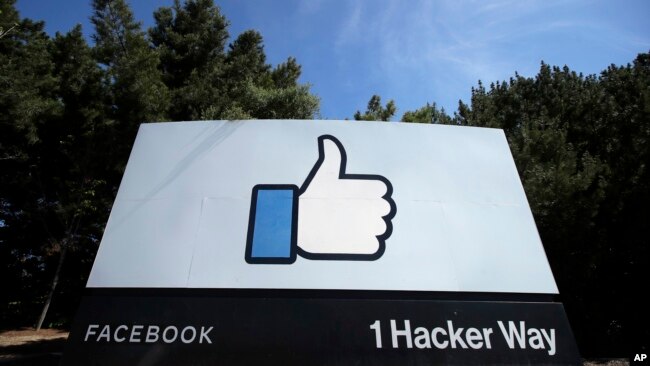Facial recognition systemsなぜ必要?
「Facebook」から「Meta」に社名変更するそうです。
犯罪防止とプライバシー保護。
とどのつまりは、使われ方の問題。
会社や社会への信頼性が揺らぐ今、未来への不安はそこはかとなく心に重くのしかかります。
気分を取り直し、今日もVOAで知識と英語を磨きましょう!!
Facebook、顔認証システムを停止
Facebook Shuts Down Facial Recognition System
Facebookは、写真やビデオに写っているユーザーを自動的に識別する顔認識システムを終了すると発表しました。
同社の人工知能担当副社長であるJerome Pesenti氏は、今週、同社のコーポレートサイトに掲載された声明の中でこの変更を発表しました。
Pesenti氏は、このシステムの終了を決定したのは、"当社製品における顔認証の使用を制限するための全社的な動きの一環 "であると述べています。Facebookの顔認証システムは、"今後数週間のうちに "終了する予定です。
この動きは、ソーシャルメディアサービスが、自社の製品が有害である可能性を示唆する独自の調査を行ったにもかかわらず、ユーザーを保護するための措置を講じなかったという非難に直面していることに由来します。これまでにも、Facebookはユーザーのプライバシー保護に十分な対策を講じていないとの批判にさらされてきました。
今回の決定は、社名を「Facebook」から「Meta」に変更すると発表したことを受けたものです。業界の専門家によると、今回の社名変更は、ここ数カ月の間にメディアで取り上げられた好ましくない話題から注目を集めることを狙ったものであるようだとのことです。
「今回の変更は、顔認識技術の歴史の中で、顔認識の利用方法が大きく変化することを意味します」とPesenti氏は声明で述べています。その結果、”10億人以上の人々の個別の顔認識テンプレート”が削除されることになる、と声明は付け加えています。
Meta社によると、Facebookのデイリーアクティブユーザーの3分の1以上が、ソーシャルネットワークのシステムで顔を認識することを許可しているとのことです。これは、全世界で約6億4000万人に相当します。
Facebookが顔認識機能を提供し始めたのは約10年前。しかし、裁判所や政府関係者からの圧力が強まるにつれ、ユーザーがこのシステムを拒否することが容易になってきました。
Pesenti氏は、同社が顔認識技術を強力なツールとして捉えていることを述べています。しかし、顔認証技術が役立つ場面については、”この技術全体に対する懸念の高まりと照らし合わせる必要がある”と述べています。
同氏は、この技術の許容できる使用例として、人物の身元確認や詐欺行為の防止を挙げています。また、Meta社は今後もこのような用途での顔認証の研究を続け、外部の専門家の意見を聞いた上で、将来的にどのようにこの技術を使用するかを決定したいと述べています。
Kristen Martin氏は、インディアナ州のノートルダム大学で技術倫理を研究している教授です。同教授はAP通信に対し、フェイスブックがこのシステムの停止を決定したことは、"ユーザーと企業にとって有益な製品決定を行おうとする良い例である "と述べています。また、顔認証システムは長い間、強い批判の対象となっていたため、今回の動きは一般市民や規制当局の圧力の力を示すものでもあると付け加えています。
顔認証技術は、小売業や警備会社、一部の法執行機関など、他の業界でも利用されています。しかし、これらのシステムは失敗率が高く、特に一部のマイノリティグループのメンバーを識別しようとした場合、失敗することが多いと批判されています。また、顔認識技術は、プライバシーや倫理的な問題にも大きな影響を与えています。
アメリカのいくつかの都市では、顔認証システムの使用を禁止しています。また、アマゾン、マイクロソフト、IBM、グーグルなどの大手テクノロジー企業は、法執行機関への顔認識ソフトウェアの販売を中止しています。
Adam Schwartz 氏は、電子フロンティア財団の弁護士です。同氏はロイター通信に対し、フェイスブックの行動は他のテクノロジー企業の動きを受けてのものだと述べています。同氏はロイター通信に対し、フェイスブックの行動は、他のハイテク企業の動きに続いて行われたものだとしながらも、"顔認証からの国家的な脱却の注目すべき瞬間 "であると述べています。
Facebook Shuts Down Facial Recognition System(原文)
Facebook says it is ending its facial recognition system that automatically identifies users in pictures and videos.
The company’s Vice President of Artificial Intelligence, Jerome Pesenti, announced the change this week in a statement on the company’s corporate website.
Pesenti said the decision to end the system was “part of a company-wide move to limit the use of facial recognition in our products.” The facial recognition system on Facebook is to be ended “in the coming weeks.”
The move comes as the social media service faces accusations that it failed to take action to protect users even though its own research suggested its products can be harmful. In the past, Facebook has also faced widespread criticism for not doing enough to protect the privacy of its users.
The decision also followed a company announcement that it was changing its name from Facebook to Meta. Industry experts have said the name change appeared to be an attempt to move attention away from unfavorable media attention in recent months.
“This change will represent one of the largest shifts in facial recognition usage in the technology’s history,” Pesenti said in his statement. As a result, “more than a billion people’s individual facial recognition templates” will be removed, the statement added.
Meta has said that more than a third of Facebook’s daily active users have given their permission to have their faces recognized by the social network’s system. That represents about 640 million people worldwide.
Facebook first started offering facial recognition about 10 years ago. But over time, it has made it easier for users to opt out of the system as it faced more pressure from courts and government officials.
Pesenti said the company still sees facial recognition technology as a powerful tool. But he noted that the situations where it can be helpful “need to be weighed against growing concerns about this technology as a whole.”
He said examples of acceptable uses of the technology would be to confirm a person’s identity or prevent fraudulent activities. He added that Meta will continue working on facial recognition for such uses and would seek out the opinions of outside experts before deciding on how it will use the technology in the future.
Kristen Martin is a professor of technology ethics at the University of Notre Dame in Indiana. She told The Associated Press that Facebook's decision to shut down the system “is a good example of trying to make product decisions that are good for the user and the company.” She added that the move also demonstrates the power of public and regulatory pressure, since the facial recognition system has long been the subject of strong criticism.
Facial recognition technology has been used by other industries as well, such as retail businesses, security companies and by some law enforcement agencies. But critics say such systems have a high failure rate, especially when attempting to identify members of some minority groups. Facial recognition technology has also led to major concerns over privacy and ethics issues.
Several American cities have passed bans on the use of facial recognition systems. And major technology companies, including Amazon, Microsoft, IBM and Google, have stopped selling facial recognition software to law enforcement agencies.
Adam Schwartz is a lawyer for the Electronic Frontier Foundation. He told the Reuters news agency that Facebook's action comes after moves by other tech companies. Still, he said, it could mark a "notable moment in the national turning-away from face recognition.”
Words in This Story
automatic – adj. something controlled using machines and not people
shift – n. a change in something
template – n. a system that helps organize information on a computer screen
opt out – phr v. to choose not to be part of an activity or to stop being involved in it
fraudulent – adj. dishonest and illegal
ethics – n. ideas and beliefs about what kind of behavior is morally right or wrong
regulatory – adj. controlling an activity or process, especially by using rules
retail – n. the activity of selling products to the public in shops and on the internet
